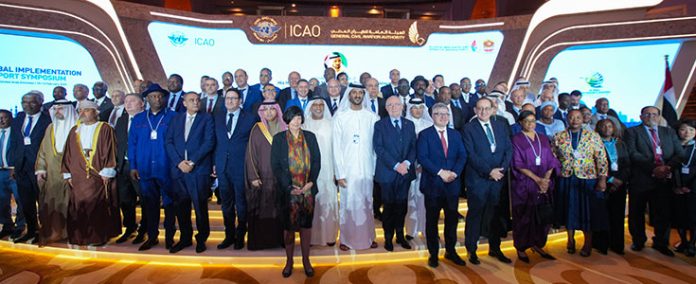The Global Aviation Summit secured major commitments for sustainable air transport development, with Africa emerging as a key beneficiary. Commitments included the development of Mauritania’s Civil Aviation Master Plan and specialized training programs in Zambia, Nigeria, and Sierra Leone to enhance technical expertise. The Government of Japan pledged support for civil aviation master planning in Southern African and South American states, while Spain’s development partners committed to fellowships for developing countries.
The summit, hosted by the International Civil Aviation Organization (ICAO) at the Global Implementation Support Symposium (GISS), drew 32 senior ministerial officials and over 1,500 attendees from 108 states, setting a new record. It directly advanced ICAO’s 2026-2050 Strategic Plan, which aims for net-zero carbon emissions by 2050, zero aviation fatalities, and a globally connected transport system that leaves no country behind. These ambitious goals require unprecedented international cooperation and capacity building.
Leaders reached key agreements, including 21 new bilateral and multilateral deals to strengthen aviation capacity. The UAE Government partnered with ICAO to establish the $1 million Sheikh Mohammed Bin Rashid Global Aviation Award. France committed to training 1,000 aviation professionals between 2025 and 2027, while a strategic Donor Dialogue with 30 states and organizations explored innovations in ICAO’s fellowship programs. The Global Aviation and Aerospace Skills Taskforce (GAAST) pledged to support ICAO’s Next Generation of Aviation Professionals (NGAP) initiative.
A highlight of the summit was the launch of the Global Sustainable Aviation Marketplace (GSAM) by the UAE General Civil Aviation Authority, supported by ICAO and Sustainable Aviation Futures, to scale decarbonization and sustainable aviation fuel (SAF) production. ICAO FINVEST Hub, focused on connecting aviation sustainability projects with investors, gained industry backing through letters of intent.
Discussions at the event covered AI-powered aviation, regulatory and technological synergies for airport efficiency, and SAF financing. ICAO Council President Salvatore Sciacchitano emphasized the growing recognition of aviation’s role in economic and societal development, while ICAO Secretary General Juan Carlos Salazar underscored the organization’s commitment to supporting resource-constrained states through technical assistance and donor engagement.
Other regional commitments included Trinidad and Tobago’s technical capacity partnership, Kazakhstan’s Civil Aviation Master Plan, and a Royal Melbourne Institute of Technology partnership for Asia-Pacific capacity building. The Middle East saw an agreement to revitalize Yemen’s civil aviation sector and a UAE-backed training initiative for women’s empowerment in aviation.
Building on this momentum, Morocco was announced as the host of GISS 2026, ensuring continued progress in aviation sustainability and global implementation support.













